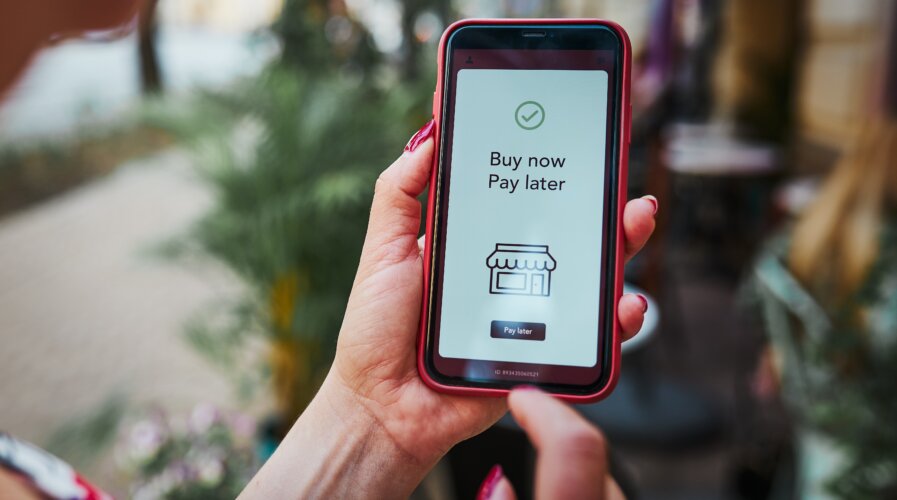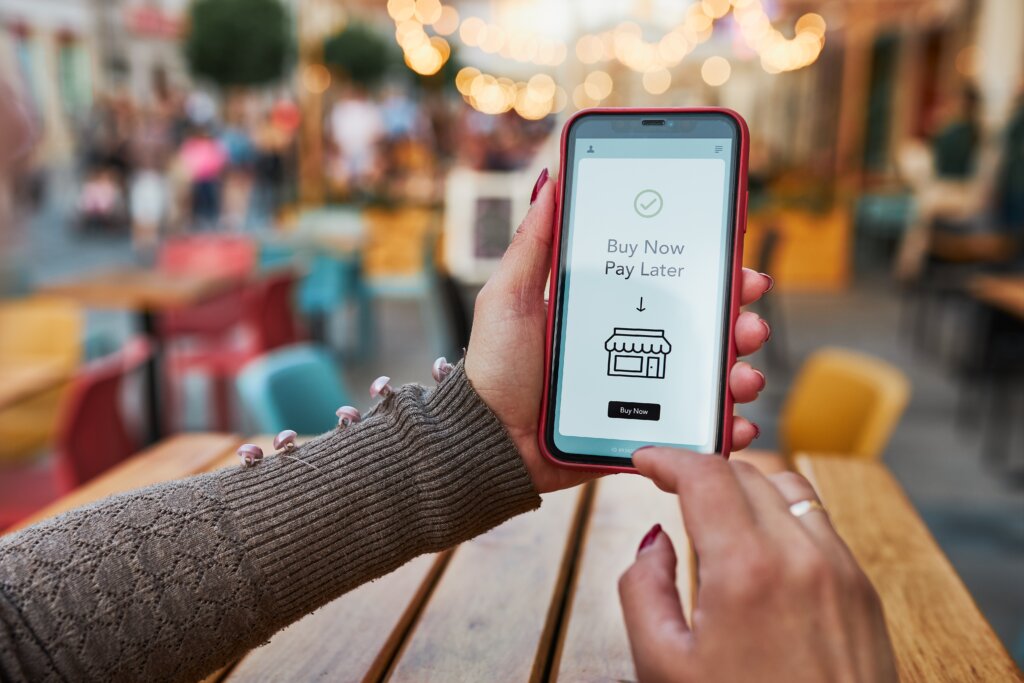
Singapore unveils its buy now pay later code of conduct. (image by Shutterstock)
Singapore unveils buy now pay later code of conduct
- Singapore’s buy now pay later working group unveils code of conduct.
- Any new BNPL entrants should seek to comply with the BNPL code.
- The code of conduct promotes industry best practices.
When fintech companies started offering buy now, pay later (BNPL) services a few years ago, the impact of the innovation was predicted to be low. However, the Covid-19 pandemic changed all that. With physical stores shutting down and people losing their jobs in some sectors, the demand for BNPL services surged.
BNPL is a short-term financing option that breaks purchases into smaller payments with low or no interest. Retailers offer the installment plan to customers at point-of-sale (via BNPL providers) and post-purchase by many banks. The number of repayments varies based on the provider. Most BNPL providers break the payments into three or four installments, while some can go up to 12 or 24 months.
According to statistics, BNPL payments in the Asia Pacific region are expected to grow by 20.4% to reach US$198.2 billion in 2023. The BNPL payment industry in the Asia Pacific region has recorded strong growth over the last four quarters, supported by increased e-commerce penetration. BNPL experienced rapid growth in Southeast Asia in Singapore, Malaysia, and Indonesia.
But, while BNPL does offer some convenience in payments, there are some concerns that consumers may end up with more debt due to the need for more regulations. A study by Deloitte reveals that BNPL consumers need to catch up on payments while spending beyond their means. 68% of all BNPL customers admit they spend more than they otherwise would when using BNPL to make purchases.

Singapore’s BNPL firms must comply with the new code of conduct by November, 2023 – so the clock is ticking.
One reason for this is the lack of a credit background check required by BNPL service providers. To use the service, customers only need a valid bank account. No other financial background checks are made when the service is offered.
Given these concerns, some countries are now working towards regulating BNPL so that consumers will not end up in a debt trap. In Singapore, the buy now pay later working group was formed by the Singapore FinTech Association (SFA) and industry players under the Monetary Authority of Singapore (MAS) guidance.
Existing BNPL service providers in Singapore include Ablr, Atome, Grab, LatitudePay, ShopBack and SeaMoney. Some of these service providers have a footprint around Southeast Asia, too. For example, Grab’s BNPL services are available in Malaysia, Indonesia, and the Philippines.
The working group has just unveiled its buy now, pay later code of conduct (BNPL code). The code, which has entered its next implementation phase, requires all existing BNPL service providers in Singapore to comply with the regulation from November 1, 2023, and be accredited by March 31, 2024. Any new BNPL entrants should seek to abide by the BNPL code before offering BNPL services in Singapore.

The code of conduct aims to protect consumers from over-extending themselves. (image by Shutterstock)
The buy now, pay later code of conduct
According to a statement by the SFA, the code of conduct promotes industry best practices by stipulating safeguards to mitigate the risk of consumer over-indebtedness. The BNPL service providers in Singapore that have so far reached the latest milestone are Ablr, Atome, Grab, LatitudePay, SeaMoney and ShopBack.
To have BNPL providers abide by a set of industry standards, the code of conduct will request all providers to meet and engage with the following rules:
- Global information technology services company Experian has set up a private credit bureau to facilitate the credit information-sharing process. Credit information sharing will enable BNPL firms to consider a customer’s outstanding balance(s) across BNPL providers when conducting further credit assessments.
- BNPL providers must also undergo an audit by an independent assessor to ensure that they are code-compliant. the SFA will then assess their qualification for accreditation. If successfully accredited, they can display an accredited trustmark, indicating that they are compliant with the code for three years before having to be re-accredited. PwC has been appointed by all six named BNPL service providers as the independent assessor for their first assessment. Come April 1, 2024, the trustmark will be awarded to accredited service providers, and consumers can look out for this trustmark on the BNPL providers’ websites and other collaterals.
- An oversight committee (OC) consisting of qualified and experienced members has been formed to supervise and monitor code-compliance and, in doing so, foster high standards of professionalism in the industry.
“We are extremely pleased that all current providers of BNPL in Singapore are making significant positive progress with our code of conduct. This has all been done with the protection of consumers in mind, to ensure those benefiting from using BNPL in Singapore can do so in a protected and trusted environment. This code of conduct is robust and enforceable; we look forward to seeing the positive impact we know it will have on the industry,” said Shadab Taiyabi, president of the SFA.
Meanwhile, Andrew Tan, executive director (Prudential policy department) at MAS, highlighted that the industry has worked hard over the past year to implement the standards and safeguards in the BNPL code, particularly to establish a credit information sharing process.
“We look forward to BNPL firms’ successful accreditation and earning the trustmark by April 2024, which will help consumers recognize firms that have implemented the code fully. The effective adoption of the BNPL code will improve consumer outcomes for BNPL users and mitigate risks of debt accumulation,” said Tan.
READ MORE
- Safer Automation: How Sophic and Firmus Succeeded in Malaysia with MDEC’s Support
- Privilege granted, not gained: Intelligent authorization for enhanced infrastructure productivity
- Low-Code produces the Proof-of-Possibilities
- New Wearables Enable Staff to Work Faster and Safer
- Experts weigh in on Oracle’s departure from adland




